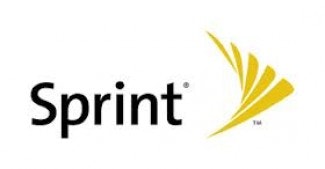
High yielding energy stocks. Cooperman and his team remained interested in energy, and interested in particular with energy stocks paying high yields at current prices and dividend payments. Their eight largest holdings included Linn Energy LLC (NASDAQ:LINE) (which the fund had added to considerably during the first quarter of the year), Kinder Morgan Inc (NYSE:KMI), and Atlas Pipeline Partners, L.P. (NYSE:APL). Linn Energy LLC (NASDAQ:LINE)’s current yield is over 8%; it is an $8.4 billion market cap oil and gas company. It did underperform analyst estimates last quarter, even as revenue grew 36% compared to the first quarter of 2012, and doesn’t look like too good a value at a forward P/E of 21.

Sprint. Sprint Nextel Corporation (NYSE:S) had been the fund’s largest holding at the beginning of the year, and Omega actually added shares between January and March. Dish Network and SoftBank are currently bidding for the opportunity to acquire Sprint Nextel Corporation (NYSE:S); merger arbitrage is a popular strategy among hedge fund managers as the returns on the stock of the acquisition target depend on whether or not the transaction closes and are therefore somewhat independent of market conditions. Currently, Sprint Nextel Corporation (NYSE:S) is actually trading a bit above Softbank’s offer price.
Qualcomm. Omega increased its stake in QUALCOMM, Inc. (NASDAQ:QCOM) to a total of 3.3 million shares by the end of the quarter. The $110 billion market cap communications equipment company’s net income fell last quarter versus a year earlier, but this was because of earnings from discontinued operations in the year-ago period; earnings from continuing operations actually came in 30% higher. The stock is valued at 18 times its trailing earnings, so we wouldn’t call it a pure value stock, but the recent performance is quite strong and so QUALCOMM, Inc. (NASDAQ:QCOM) may offer “growth at a reasonable price.” That’s certainly what the sell-side thinks, as their earnings estimates imply a forward P/E of 13 and a five-year PEG ratio of 0.8.
As a result QUALCOMM, Inc. (NASDAQ:QCOM) looks interesting to us, and we’d be interested in taking a closer look at the company to see how it might grow enough over the next several years to merit a higher valuation. We’re wary of getting involved in Sprint Nextel Corporation (NYSE:S) at a price higher than the takeover offer- it seems a bit speculative to us, and would certainly require a good deal of confidence that bids will be raised. As for the energy dividend plays, we certainly don’t like those in value terms. Income investors could of course find yields of up to 8% attractive, but even in that case it’s probably wise to examine why the stock is trading at its current multiples and what the chances are of a severe decline in price.
Disclosure: I own no shares of any stocks mentioned in this article.



